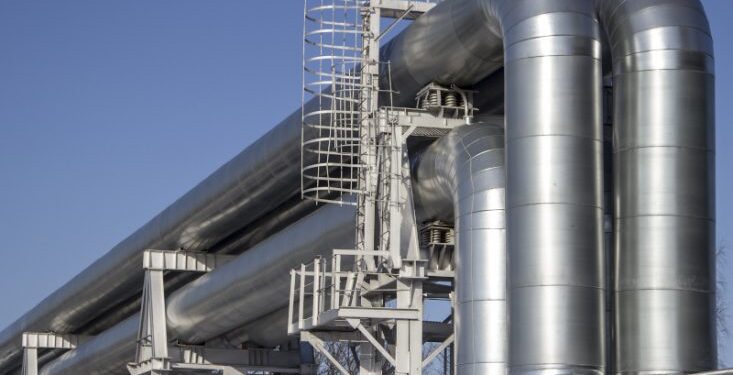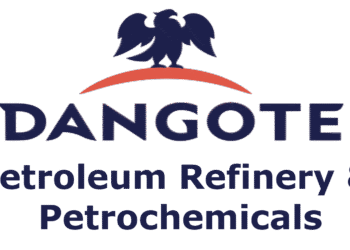Abuja – The minister of state for petroleum Resources, Timipre Sylva has disagreed with the Nigerian Upstream Regulatory Commission (NUPRC), over its claim that measurement errors were responsible for the loss of revenue in the petroleum sector.
Gbenga Komolafe, the Chief Executive of NUPRC had in a presentation over the weekend claimed that measurement errors were largely responsible for crude loses in the country.
However, the minister, insisted that loss of revenue from crude production is largely due to theft, pipeline vandalism and decayed infrastructure.
The Minister’s reaction was contained in a press statement issued by Horatius Egua, Senior Adviser, Media and Communications to the Minister of State Petroleum Resources,
Sylva said in the statement that despite the challenges, the Federal Government is determined to reverse the trend through improved investments and provision of security along the major oil and gas pipelines in the Niger Delta region.
The NUPRC’s Chief Executive had claimed that about 40 per cen of the volumes of crude losses are due to measurement inaccuracies.
But the minister explained that the major sources of crude oil losses have primarily been theft, pipeline vandalism and production deferment as a result of pipeline non-availability.
“It is a known fact that the major losses of crude oil in the country have been through theft and destruction of oil pipelines.
“Again we also know that some of the oil infrastructure are old and decayed and cannot perform at maximum capacity.
“And there is also the issue of lack of investments in fossil fuel in the country and the drive towards renewable energy has really hampered new investments in this sector,” Sylva said.
The minister said the Government has put measures in place to restore sanity in the sector adding that contrary to the report, the problem associated with crude oil losses are systemic issues that the government was already handling with a view to finding permanently solutions to.
The Minister urged NUPRC and the Midstream and Downstream Petroleum Regulatory Authority (NMDPRA) to harmoniously work together to ensure that the constraints and impeding challenges in the optimal crude oil production volume were speedily addressed to boost national revenue.
According to him, the Federal Government cannot continue to lose revenue through perceived lapses in crude oil production, especially at this very critical period of scarce revenue for the nation.
He emphased that this was not the ” time to dwell on the mistakes of the past or engaged in needless blame games but a time to work to close all existing leakages to enable government get maximum benefits from its crude oil and gas assets.”
While expressing satisfaction at the improved security along the major oil pipelines in the region, Sylva called for sustained efforts by all concerned to maintain maximum crude oil production.
“We are very confident that Nigeria will achieve 2 million barrel per day crude oil production target very soon. The government is doing everything possible to get to where we should be and everyone is working hard to achieve this,” the minister said.
Gbenga Komolafe had stated sometime last week that metering errors account for around 40 per cent of the crude oil losses in Nigeria’s production generally attributed to oil theft.
“A forensic audit on the scale of crude theft, conducted by the Nigerian Upstream Regulatory Commission (NUPRC) for the period between January 2020 and November 2022, has shown that 40 per cent of the volumes thought to be lost to oil theft were actually due to inaccuracies in measurement at oil and gas facilities,” NUPRC’s chief executive Gbenga Komolafe said.
“Admittedly, one major area of value erosion in the industry is the menace of crude oil theft,” Komolafe said in a speech at an energy industry event in Lagos.
“Our records indicate that the menace of oil theft has negatively impacted the oil and gas sector for about two decades,” the head of the upstream watchdog added.
NUPRC will now be responsible for the deployment and maintenance of metering facilities across Nigeria’s oil and gas industry, for transparency in hydrocarbon accounting, he said.
Oil theft and pipeline vandalism have long plagued Nigeria’s upstream oil and gas industry, driving majors out of the country and often resulting in force majeure at the key crude oil export terminals.
The combination of pipeline vandalism and oil theft with a lack of investment in capacity has made Nigeria the biggest laggard in crude oil production in the OPEC+ alliance.
According to OPEC’s latest Monthly Oil Market Report (MOMR), Nigeria’s crude oil production rose by 65,000 barrels per day (bpd) in January compared to December last year—the biggest increase among all 13 OPEC members last month. However, the level of the crude oil output, at 1.336 million bpd in January, was well below the 1.742 million bpd quota Nigeria has as part of the OPEC+ agreement between November 2022 and December 2023.





















